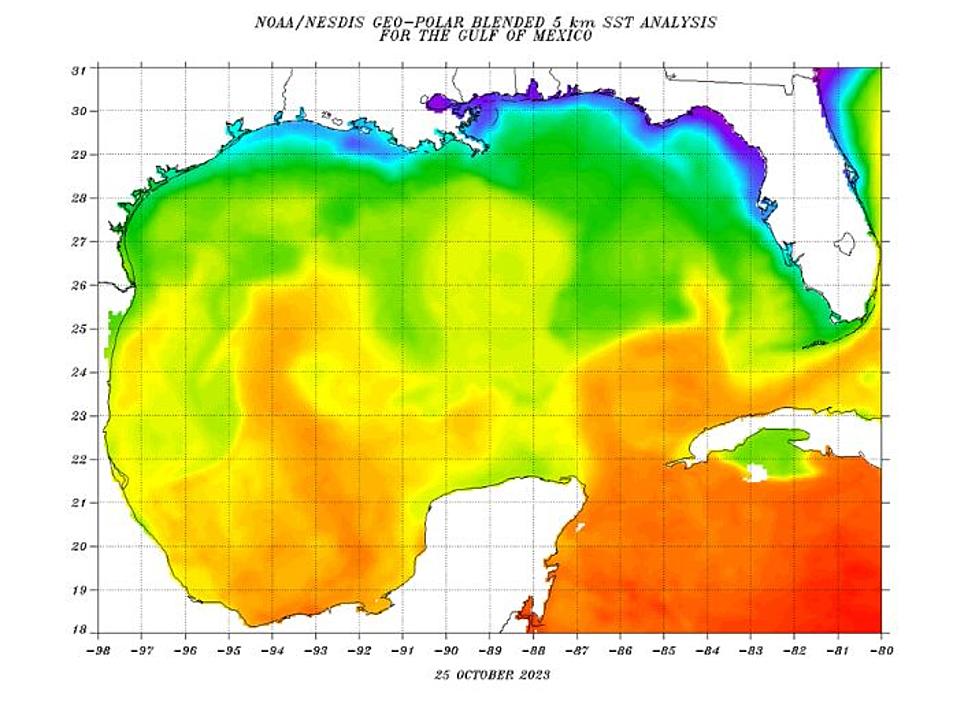
Will Louisiana Be Threatened by Hurricane Season’s Last Gasp?
Lafayette, LA (KPEL News) - It should be no surprise that we are still talking about the tropics and hurricane season. The obnoxious heatwave that gripped Louisiana and much of the country heated up the water in the Gulf of Mexico and the Caribbean to the point that it felt like bath water.
And it hasn't cooled down much.

Hurricanes are like heat engines, and they are fueled by warm water. The warmer the water, the greater the chance of development. And the longer they churn over warm water, the stronger they can become.
Current surface temperatures in the Caribbean and southern part of the Gulf of Mexico are still about 82 degrees. Relatively close to land, Gulf temps are sitting right at 80.
If you've paid attention to our local meteorologists over the years, they also talk about wind sheer and steering currents when we are watching any system in the Atlantic, Caribbean, or the Gulf of Mexico. Being a weather geek and having access to a meteorologist nearly every day for more than 15 years, Dave Baker fed my hunger for information. He explained that sheer can knock the top off a system, preventing development or strengthening. Steering currents, like fronts dropping down from the north, can affect its direction. Hurricanes follow the path of least resistance.
The National Hurricane Center has identified an area of interest in the central Caribbean Sea that they assigned a 30% chance of development in the next week.
If it manages to make it to tropical storm strength, it's name would be Vince, unless another one forms in the Atlantic before our Caribbean "friend" does. You may be scratching your head, wondering how we made it to V in the name list. Thankfully, the majority of storms have stayed away from the mainland U.S. or haven't given south Louisiana any grief in 2023.
We are expecting a cold front mid-week next week, so that will likely serve as a barrier for Louisiana.
According to Fox Weather, Hurricane Kate hit Florida on November 21, 1985, and holds the record for the latest date, on record, that a storm made landfall in the United States.
To be fair, hurricane season doesn't end until November 30th. We are well aware that Mother Nature doesn't pay attention to a man-created calendar.
Meteorologists have done a good job of determining the timing of all these weather components to keep us all informed, so we will be watching both the National Hurricane Center information and listening to our trusted local folks.
Most Feared Weather Events in Louisiana
Gallery Credit: Tracy Wirtz
LIST: 10 Deadliest Louisiana Hurricanes
Gallery Credit: Rob Kirkpatrick



